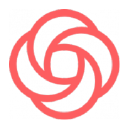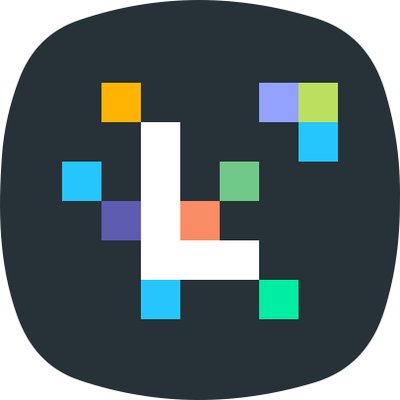How We Helped 750 Entrepreneurs & Remote Workers To Build Their Businesses
Hello! Who are you and what business do you run?
I’m Lavinia and I am the Managing Partner at Livit International. We are a support ecosystem and a service provider for startups and scale-ups headquartered in Bali, Indonesia. We help entrepreneurs and their teams with a variety of services:
- coworking, innovation & event spaces at Livit Hub Bali
- Strategic & HR Business Partner services globally
- tech and non-tech recruitment in Europe and Asia
- remote work education for Indonesians via the Remote Skills Academy
- business support services in Bali (HR, finance, legal, logistics & admin)
- curated getaway events and retreats for entrepreneurs and teams via Project Getaway
- training & education on entrepreneurship & building high performance, engaged, scalable, remote-capable teams
Over the past 6 years, we’ve inspired and enabled 750+ entrepreneurs, startup enthusiasts, remote workers, freelancers, digital nomads to build disruptive businesses with a global impact and truly enjoy work & play.
We’ve facilitated the emergence and/or growth of some extremely exciting companies (e.g. Labster, Mailbird, Cathvision, Magloft). Some of these businesses have now attracted multiple rounds of funding and have scaled to 10, 30, 100+ team members.
We believe in a reinvented version of work, and we’ve brought it to life in Bali and a variety of other places across the globe.


What's your backstory? How did you come up with the idea?
As you will probably be able to tell by reading my answers, I am a huge future of work enthusiast. I’ve spent the last decade developing & expanding a range of innovative, purpose-driven, international projects and organizations; as well as studying, researching what makes a good employer in different cultures, how to build great teams, and practicing human resources/talent development. I am originally from Romania and I’ve lived, studied, worked on 4 continents in 8 different countries, and visited 35+ others.
My business partner, Michael Bodekaer, came to Bali in the early 2010s. He was tired of the 9-to-5 and decided to build his own businesses, travel the world, and live life on his own terms. He didn’t miss the timesheets, managers, and long meetings from the office environment, but he did miss working with great people. So he founded what is now called Livit, which was initially a co-living community for founders (well before co-living became trendy :D), and then evolved into a support ecosystem for startups. Five years ago, Michael and I started working together and discovered our values and ‘WHYs’ are very much aligned.
Don’t listen to advice. Nor most ‘hacks’. Forge your own path. Seek inspiration, seek role models, but don’t revere advice. Circumstances are different, people are different.
As Michael focused on a different business, I took the lead and, over the last years, came up with the concept for Livit Hub Bali, our coworking and innovation hub, our Strategic & HR Business Partner and training modules, and the Remote Skills Academy. When I initially started out, I didn’t know how any of these would eventually look, but I had a deep passion for meaningful work, for finding better ways of working, building teams, and living life.
Take us through the process of designing, prototyping, and manufacturing your first product.
As Livit is an umbrella brand and we have a variety of services and verticals, I’ll speak about three of them:
HR & Strategic Business Partner services
In the early stages, our community functioned similarly to a startup studio or incubator. So we initially built all these businesses that do so well now. What we did next is we distilled all that experience and figured out what worked and what didn’t work in building those businesses, especially at a team and strategic level. We brainstormed topics, curricula, systems, frameworks that we can help with. We then tested it out with a few clients outside of our existing community, and tweaked, learned how to work best with clients who might have a variety of needs. We’re still learning, with each client, and that’s the fun part.
Adding this part of the business actually meant opening a separate legal entity and set up all together, as I wanted a more flexible tax, compliance as well as employment setup for our remote team. So I incorporated in Estonia via the e-residency program, which I’d heard of and been curious about for a while. The total cost of opening the company and having the basic contracts reviewed by lawyers was around $1,000, which Michael and I covered from personal funds. It’s a complete location independent setup, where you never have to show up in person to register, pay taxes, or anything else. I love it!

Livit Hub Bali
This was mid-2017, and I initially drew the concept/layout on a piece of recycled paper and proceeded to look for space. After seeing 40+ buildings, we decided for a former garment factory that had not been used for 4 years. We took it apart, kept the “shell” of the building, and rebuilt everything else to fit our needs.
Many ups and downs later (including the process of registering the address and getting the right building and business permits that took a full year(!), in mid-2018, we inaugurated Livit Hub Bali.
We pre-opened for a limited number of “beta testers” from our existing co-living community, we then welcomed a few teams from our portfolio of clients, and then eventually after tweaking and improving a number of things, opened to the public as well.
The concept at the hub is a ‘plug-and-play’ one, where everything is taken care of, from productive, inspiring workspaces, to meals, snacks, workouts, social events, laundry, and so on - so all you need to focus on is getting work done and… changing the world. :)








Remote Skills Academy
Shortly after I moved to Bali, I noticed an interesting, paradoxical phenomenon on our beloved island, which has become ‘the’ hot-spot for digital nomads, remote workers and location independent entrepreneurs, who take advantage of all these new ways of working and make their living physically being often thousands of kilometers away from their employees, partners, clients or providers.
They get to surf, enjoy the sun and have a smoothie bowl before plugging in for a few hours of productive work from a coworking space, their villa or a cafe, then squeeze in a yoga lesson or a gym session and end their day watching the sunset over tapas on the beach.
At the same time and around the very same epicenter of the work revolution described above, many of the Indonesians and Balinese around us are left behind. They work long, inflexible hours, 6-day weeks, and depend on largely hospitality-based, low-paid, often seasonal jobs that fail to offer a high quality of life. And above everything else, these jobs are incredibly vulnerable to the whims of the tourism industry. Three years ago, it was an Agung volcano that erupted and caused lots of temporary layoffs. Before that, it was the threat of terrorism; a few other times, earthquakes and potential tsunamis. And these days, it’s the COVID-19 pandemic.
So I came up with the idea of launching an Academy that teaches these elusive remote skills that open up a whole new world of international opportunities, no matter where you are and where you’re from. We started with a Virtual Assistance course first but quickly concluded that we can do a lot more. We currently use Mighty Networks and Zoom to host the sessions.

Describe the process of launching the business.
For consistency, I’ll speak about the same 3 verticals I mentioned before.
HR & Strategic Business Partner services
We didn’t have a big launch per se for this one as we evolved into it bit by bit from our “incubation” or startup studio experience. To me, that is a great way of doing things as it allows you to experiment and do all sorts of micro-pivots on the way. So the effective launch was a series of trials over many months. It took around 3 months to make 5-10k per month from these services, but the knowledge behind it was developed over a decade, I’d say.
I’m highlighting this because in business, sometimes you get to have the shiny stuff (a celebratory launch), and sometimes the satisfaction lies more in a million tiny little iterations.
Livit Hub Bali
For the Hub, we launched publicly with a bang: a fabulous rooftop party. It took around 6 months to see a significant number (50+ per month) of “walk-in” customers, for both coworking and events. But (to go back to the idea of building a “tribe”) we had a variety of B2B clients whom we’ve worked with longer-term, and who supported the creation of the new hub, so that helped. Our biggest client, who had recently received funding, shouldered a part of the cost for opening the hub in exchange for designing and reserving a fully serviced floor for their growing teams.
We did and still do a lot of free events (both in-person and virtual) that bring people into the hub and in our community. It’s basically “experiential marketing”. They then want to spend more time at the hub, get to know our other services, and end up buying those as well :) I’m a way bigger fan of doing business development by “pulling people in” rather than keep pushing ads and salesy pitches and campaigns to them. Our biz dev magician might not agree with this when she sees it though :D


Producing great content and being news-worthy is probably one of the most powerful tools you can employ.


Remote Skills Academy
I partnered with a wonderful project manager and we created the curricula for our first “class” and put up a landing page. Due to Covid-19 and lots of people losing their jobs, there was such a need for a project like this that we spent a total of 20$ on Facebook post boosting before the spots were fully booked and we closed the sign-ups.


During and after the first intake, we ran a number of feedback surveys and sessions with participants and potential participants and modeled further topics based on that. I’m super pumped that Indonesians can now become certified remote workers and open themselves up to a whole new range of career opportunities.
Since launch, what has worked to attract and retain customers?
What’s really worked for us, in the beginning as well as later, was building a tribe. We brought together interesting, like-minded people and built a community around common values. This doesn’t always have to be physical, of course, and it doesn’t have to be a huge commitment. But if you do that, you’ll have an easier start, for sure, and draw more meaning and satisfaction from it.

Other bits that worked for us: producing high-quality video & written content, giving talks, with a powerful message. Building curated lists and online communities that rely on qualitative, purposeful exchanges rather than vanity metrics, e.g. partnering with like-minded organizations, thought leaders, and communities. For example, one of our “bigger” lists has around 2000 people, but great open rates and engagement compared to the rest of the industry.




Our customers come back and ask for more because we delighted them. I’ve often made the tough choice between offering a great experience and making more money in favor of the former, and it’s been worth it.
All these might be a lot less relevant, of course, if you run a business in the fast-moving goods or e-commerce that relies on volume selling.
How are you doing today and what does the future look like?
We are profitable and have been so for the last few years (with obviously some of our revenue streams affected by the pandemic at this exact moment).
We still do very little paid marketing, most of our new/potential clients are referred by current clients, find us via the hub or our events, or look for that specific service and find us. We also re-sell and cross-sell a lot - many of our clients use 4-5 of our services. We focus rather on quality than quantity, as you would be able to notice in some of the screenshots.
I’m super excited about where we are right now and what’s next: further developing our HR & Strategic Business Partner services, growing the Remote Skills Academy, soon re-opening the Livit Hub Bali and hopefully resuming the team retreats and getaways in the not so distant future, too.
This year, we aim to directly impact 500 entrepreneurs and startup team members via our business services, coworking, events, consultancy, training, etc services. The pandemic has thrown us off only slightly, so we’re on track to meet this ambitious goal.


Through running the business, have you learned anything particularly helpful or advantageous?
Entrepreneurship is a massive learning experience, so definitely, quite a few:
You don’t only need to do one thing, as most people say - we do lots of them. But you do need to let go of things that consistently don’t work and focus on the one(s) that do(es). In our case, one example is the co-living part of our business. It simply wasn’t serving us anymore, and it was consuming a lot of resources, so we let it go.
If you don’t want to be tied to your business every single day of your life, the key is to both build good, solid processes as well as hire and retain intrapreneurial people who are autonomous and self-driven. To retain people like that, you want to offer a lot of ownership and a fair deal (be that salaries, benefits, intangible perks, or ideally, a combination of all). In our case, we use Holacracy, a framework for encoding self-management, autonomy, agility, and purpose-alignment into the organization's DNA, which is not an easy sell but works for us and our teams.

Being ahead of the curve/a trendsetter can feel lonely for a while, but it is also fulfilling and fun. Running a coworking/coliving community in Bali before pretty much everyone else, allowed us, for example, to capitalize on that first wave of “digital nomads” who were very skilled and were building great businesses, and build an amazing community.
Doing meaningful work that has a positive impact is good for the world, good for the team, good for you. Most millionaires and billionaires, after making endless amounts of money in various other ways, end up doing that type of work. It’s what we’re designed to do, as humans - we’re designed to be up there in Maslow’s pyramid. That doesn’t mean quitting everything and starting an NGO or a charity. You *can* marry purpose and profit.
Producing great content and being news-worthy is probably one of the most powerful tools you can employ. That relies on the novelty of your product/service/movement and it’s not super easy to attain, but you can look at ‘creating’ a tiny niche or category and leading it. John or Lydia can teach you more about that.
Take care of yourself. Run the marathon, not the sprint. Book time for personal development, workouts, family, friends, and treat it like you would treat a 300$/h consult with a specialist. And make space for deep work. Shut off all those notifications, the world can spin without you for an hour or two while you work on something important and meaningful.
What platform/tools do you use for your business?
Tools are so important these days, aren’t they? Life would be so much sadder and harder without them. We use a variety of them and we love ‘em. We recently did a blog post on our favorite ones here. Among the ones I personally use & find the most useful:
- G Suite - I love having all these things (email, calendars, drive, collaborative files, Meet) in one place.
- Asana - probably the world’s best task/ project management tool, it’s powerful, has a variety of views and features to please the most sophisticated needs, yet still easy to use.
- Loom - records your screen, voice, and face to create an instantly shareable video in so much less time than it would take to type an email. Super useful for anyone who is onboarding, mentoring, teaching, managing, especially in a remote format.
- Dashlane - makes shared passwords and access super secure, and seamless. Essential in working with team members, contractors, collaborators.
- Elementor - an intuitive WordPress page builder that makes publishing & playing with landing pages, posts, etc smooth even for the non-techies.
- Fathom - powerfully simple financial analysis, management reporting, dashboards, and consolidations. If you’ve ever racked your brain and squinted your eyes trying to figure out the “bigger picture” of an excel file with multiple sheets, you’ll love it.
- Later - Allows you to visually plan, schedule, and analyze posts for Instagram, Facebook, Pinterest, and Twitter.
- OfficeVibe - a great tool to measure and increase team member engagement, develop trust, and drive team performance.

What have been the most influential books, podcasts, or other resources?
Hmmm, so many, but here are a few that come to mind instantaneously:
Reboot - both the book and the podcast. Written and led by Jerry Colonna, a former venture capitalist and professional coach who played a prominent part in the early development of Silicon Valley. The book is a journey of radical self-inquiry, like a self-administered, long coaching session. Bottom lines: better humans make better leaders and what brought you here won’t take you to the next level.
Atomic Habits - by James Clear, one of the world's leading experts on habit formation, on how changing your life often doesn’t take something extraordinary, but tiny changes in habits that compound over time, and creating a conducive environment for the kind of life you strive to build.
Rework & It doesn’t have to be crazy at work - by Jason Fried and David Heinemeier Hansson. A broad rejection of the prevailing notion that long hours, aggressive hustle, and 'whatever it takes' is what it takes in entrepreneurship.
Antifragile - things that gain from disorder, by Nassim Taleb. Some things benefit from shocks; they thrive and grow when exposed to volatility, randomness, disorder, and stressors. What are those things, and how can we, and our businesses be more like them. A super relevant one specifically these days.
Body of work - finding the thread that ties your career together, by Pamela Slim. These days it's increasingly rare to have a stable career in any field, with more and more of us moving between different gigs, businesses, jobs, taking chances to expand our knowledge, capabilities, and experience. Pamela talks about how to make sense of all of it, and tie it all together.
Principles by Ray Dalio - like a modern-day “Meditations”, a collection of precise, practical, healthy work and business management principles. I loved the “system engineering” approach.
Advice for other entrepreneurs who want to get started or are just starting out?
Don’t listen to advice. Nor most ‘hacks’. Forge your own path. Seek inspiration, seek role models, but don’t revere advice. Circumstances are different, people are different. Do the work on and with yourself and figure out your own best way of doing things.
Don’t burn yourself out in the first year(s). There’s so much “hustle porn” right now everywhere. Do that if it’s your thing, but don’t feel like you need to work the 80 hour week, sacrifice your entire personal life, and run headfirst into a mental/emotional health crisis to build a business. Practice lifestyle design - figure out how you would like your life to look like and how your business can serve and fit into that.
Aim to feel successful and happy on the mundane Wednesday, not when you’re hitting the big milestones or getting the shiny accolades and awards. That’s easy. It’s harder to consistently enjoy what you’re doing on a regular basis. We should all aim to fall in love with the process, not with the results/prize.
Are you looking to hire for certain positions right now?
We’re always hiring, for ourselves or our partners!
At the moment we’re looking for a part-time Senior Finance Coordinator who can help maintain the financial health of our organization. But also for a Senior Scrum Manager, a Senior Software Developer, a Lead UX/UI Designer (all full time), etc for clients in our portfolio.
It’s changing fast though, so check out more here.
Where can we go to learn more?
- Livit Website
- Livit Blog
- Project Getaway
- Facebook Livit
- Facebook Project Getaway
- Instagram Livit
- Linkedin Lavinia
- Medium Lavinia

Download the report and join our email newsletter packed with business ideas and money-making opportunities, backed by real-life case studies.

Download the report and join our email newsletter packed with business ideas and money-making opportunities, backed by real-life case studies.

Download the report and join our email newsletter packed with business ideas and money-making opportunities, backed by real-life case studies.

Download the report and join our email newsletter packed with business ideas and money-making opportunities, backed by real-life case studies.

Download the report and join our email newsletter packed with business ideas and money-making opportunities, backed by real-life case studies.

Download the report and join our email newsletter packed with business ideas and money-making opportunities, backed by real-life case studies.

Download the report and join our email newsletter packed with business ideas and money-making opportunities, backed by real-life case studies.

Download the report and join our email newsletter packed with business ideas and money-making opportunities, backed by real-life case studies.











